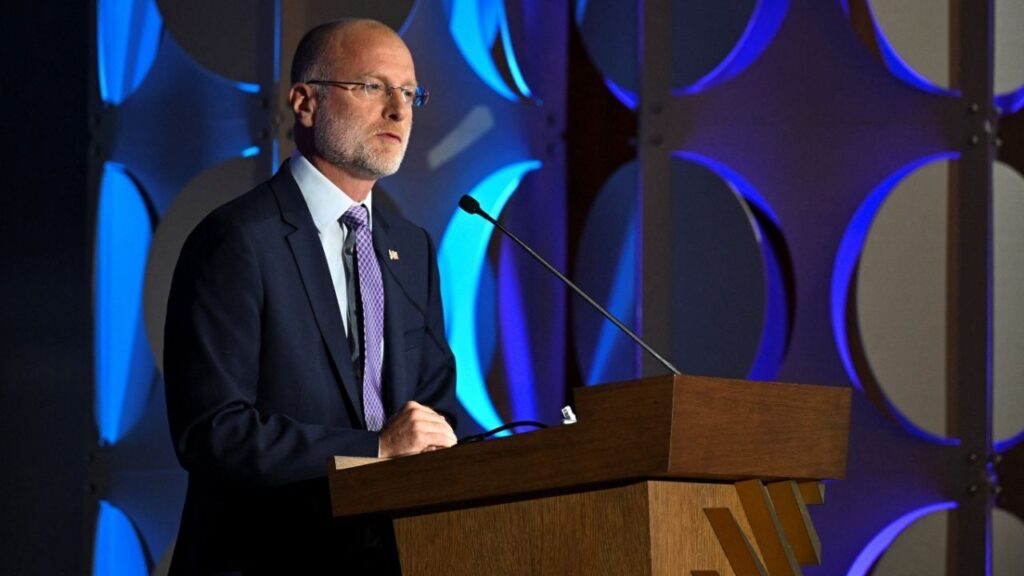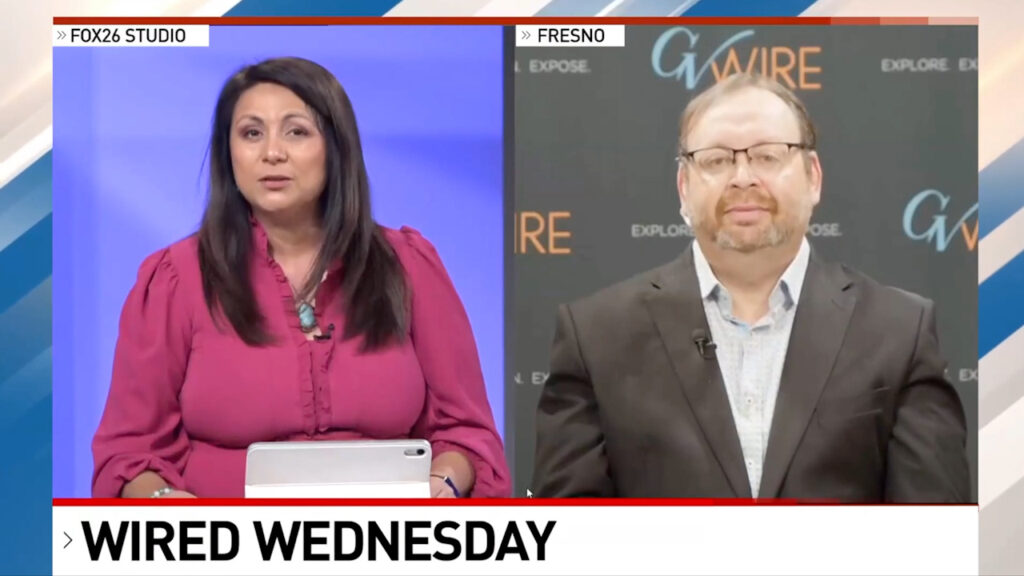President Donald Trump delivers remarks alongside Secretary of Defense Pete Hegseth in the Oval Office of the White House in Washington, March 21, 2025. (Haiyun Jiang/The New York Times/File)

- After a disastrous first 100 days, Donald Trump is starting to have a much more successful presidency.
- Sometimes the president’s bad manners and over-the-top tactics achieve useful diplomatic or political results.
- Americans will listen to Democrats when they propose better solutions for problems, not when they openly root for Trump to fail.
Share
|
Getting your Trinity Audio player ready...
|
Egads! After a disastrous first 100 days, Donald Trump is starting to have a much more successful presidency. This is not what we, his foam-at-the-mouth critics, had planned or perhaps secretly hoped for.

Bret Stephens
The New York Times
Opinion
Some of this is a function of good policy, like getting NATO’s European members and Canada to spend much more on their defense, something previous American presidents asked for, but much too politely. Far from destroying the Atlantic alliance, as his critics feared, Trump may wind up being remembered for reviving and rebalancing it, to the advantage of both sides.
Some of this is courageous policy: Joining Israel in its strikes on Iran, which Trump carried out in the teeth of political resistance from parts of his own base, did not lead us into a calamitous Middle East war, though Iran may yet seek retaliation. Instead, it helped bring the war between Israel and Iran to a swift end and, as The Washington Post’s David Ignatius has reported, did “such severe damage” that Iran’s nuclear program “will be neutered for at least a year, and probably far longer.”
Some of this is belated good policy: Speeding the delivery of arms to Ukraine, after Trump’s disastrous initial pressure campaign on Ukraine backfired by emboldening Russian President Vladimir Putin, is the only way to end the war. The next step for Trump is to make good on his sanctions threat, ideally by seizing Russia’s frozen foreign assets so that they can finance Ukrainian arms purchases.
Some of this is good policy that’s gone too far: We no longer have a migration crisis, an achievement that should not have eluded the Biden administration for most of its term and that cost the Democrats dearly. But Americans want an immigration policy that secures the border and deports criminals, not one that goes after law-abiding, hardworking immigrants lacking permanent legal status on whom many areas of the economy depend and who should be given a viable path to citizenship.
Some of this is bad policy that could have been much worse: The trade deals that Trump has recently struck with Japan and the European Union will raise costs for American consumers and hurt American businesses, especially smaller ones. But they also expand markets for American exports, including cars and agricultural products. After months of the White House’s erratic and capricious trade sanctions and bellicose rhetoric, the trade deals bring predictability and clarity.
Some of this comes down to a series of partisan victories. The big, “beautiful” domestic policy bill had many unbeautiful parts. But, as a political matter, the administration needed it to pass and it did. The directives abolishing diversity, equity and inclusion initiatives in the federal government will not sit well with much of the country. But it does not seem to be costing Trump his significant support among Black and Hispanic voters. The way to get universities to crack down on antisemitism should not be to threaten their research funding. But the $200 million settlement that the administration reached with Columbia probably ensures that the university won’t again make the mistake of letting campus fanatics run wild.
Lucks Plays a Role, Too
Finally, there’s luck. Widespread fears of a recession haven’t materialized; instead, the economy appears to be growing at a healthy clip, and the S&P 500 is up by about 10% since the election. The Democratic Party’s approval rating is at a 35-year low, according to a Wall Street Journal survey. If Zohran Mamdani gets elected mayor of New York City, it will almost surely go further to cement the party’s sadly earned reputation for urban misgovernance and elite radicalism.
All of this leaves plenty to fear, dislike and even despise when it comes to this administration. We do not strengthen alliances by threatening to seize the territory of our allies. We do not depoliticize justice by accusing a former president of treason or threatening to “go after people.” We do not safeguard free speech by suing journalists. We do not strengthen the rule of law by shaking down law firms. We do not make America healthy again by promoting medical quackery.
But if Trump’s opponents want to someday be effective — and let’s face it, we haven’t been — then we have to come to grips with realities that have so far eluded us. Such as: Not everything Trump does is bad. Sometimes the president’s bad manners and over-the-top tactics achieve useful diplomatic or political results. His about-face on Ukraine is a welcome demonstration that he’s capable of changing his mind when the facts don’t bear him out. Fulmination and moral hectoring are rarely persuasive, and neither are incessant predictions of doom that never quite materialize. Americans will listen to Democrats when they propose better solutions to common problems, not when they openly root for the administration to fail.
I have lambasted the administration over and over again, both in its current and previous term. I’m sure I will again. But while it’s never fun to be fair to those you dislike, it’s also healthy. For criticism to be credible, it cannot be blind.
This article originally appeared in The New York Times.
By Bret Stephens/Haiyun Jiang
c.2025 The New York Times Company
RELATED TOPICS:
Categories



















